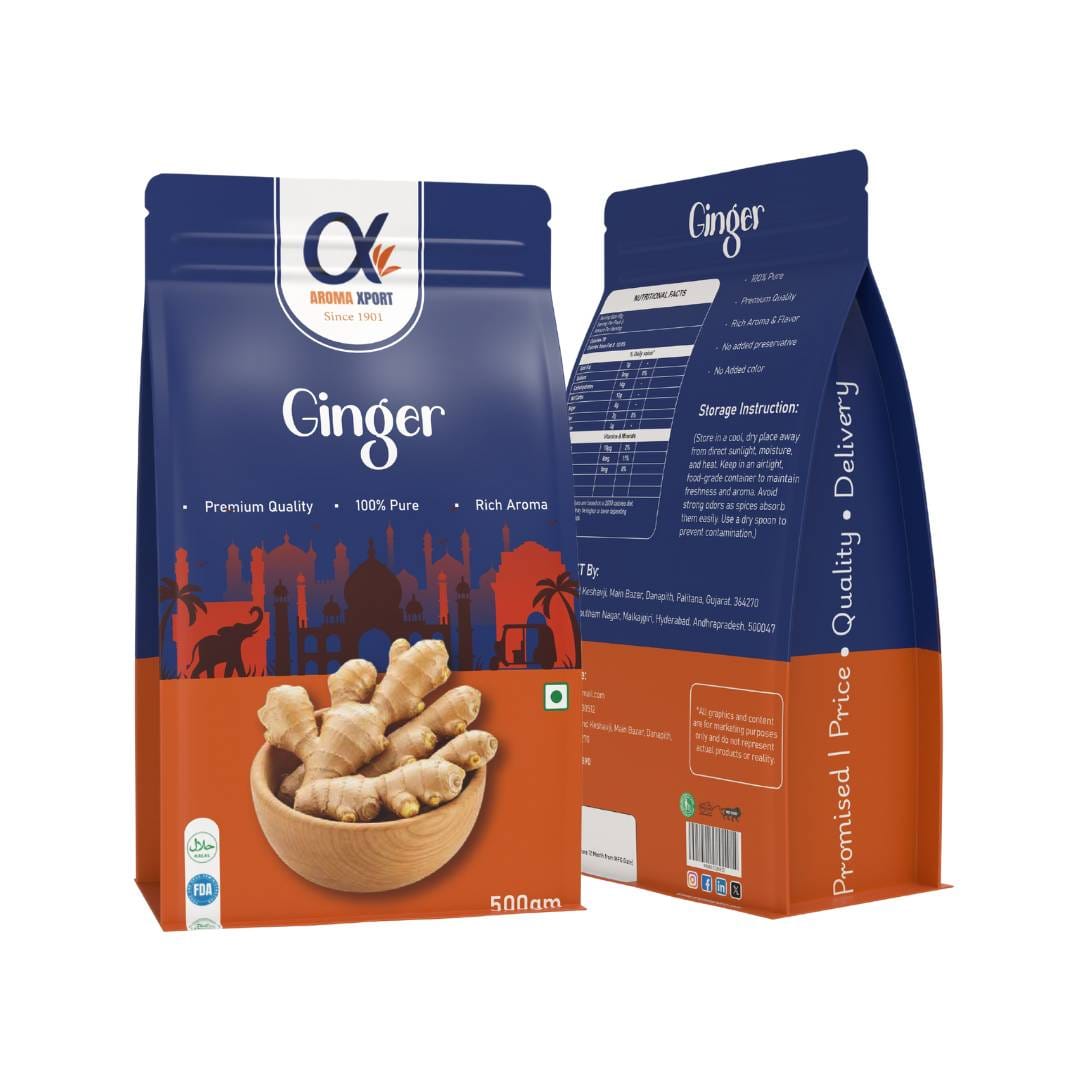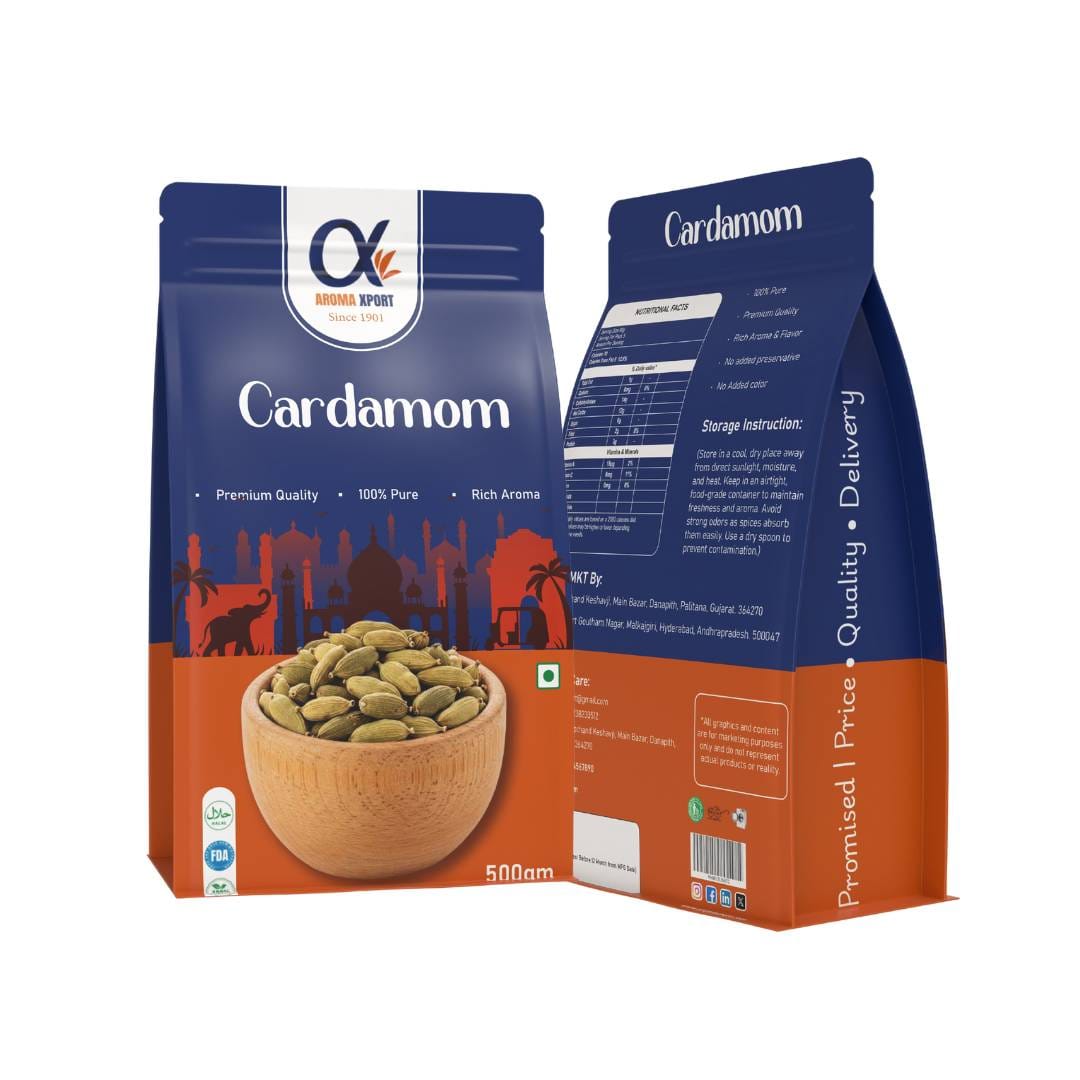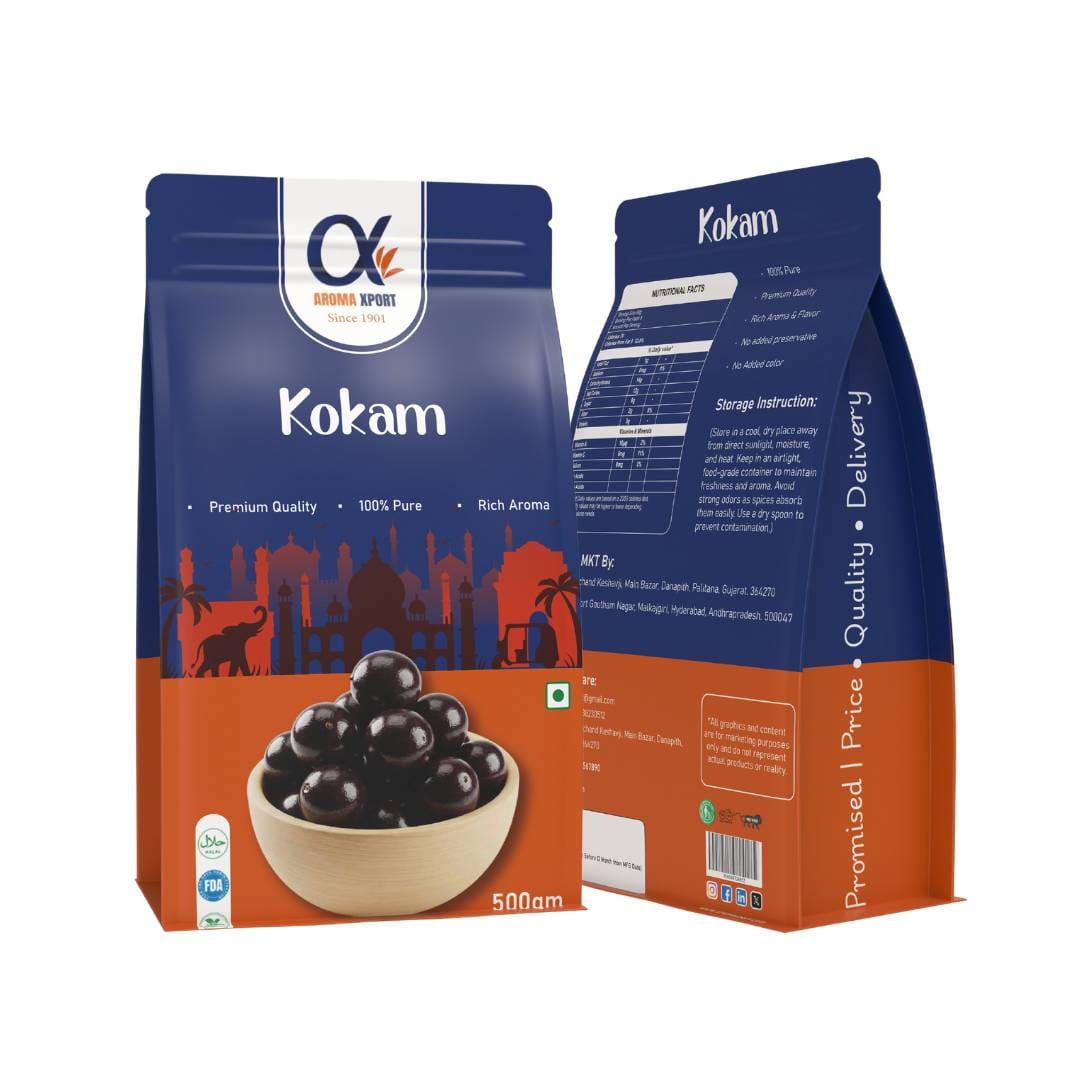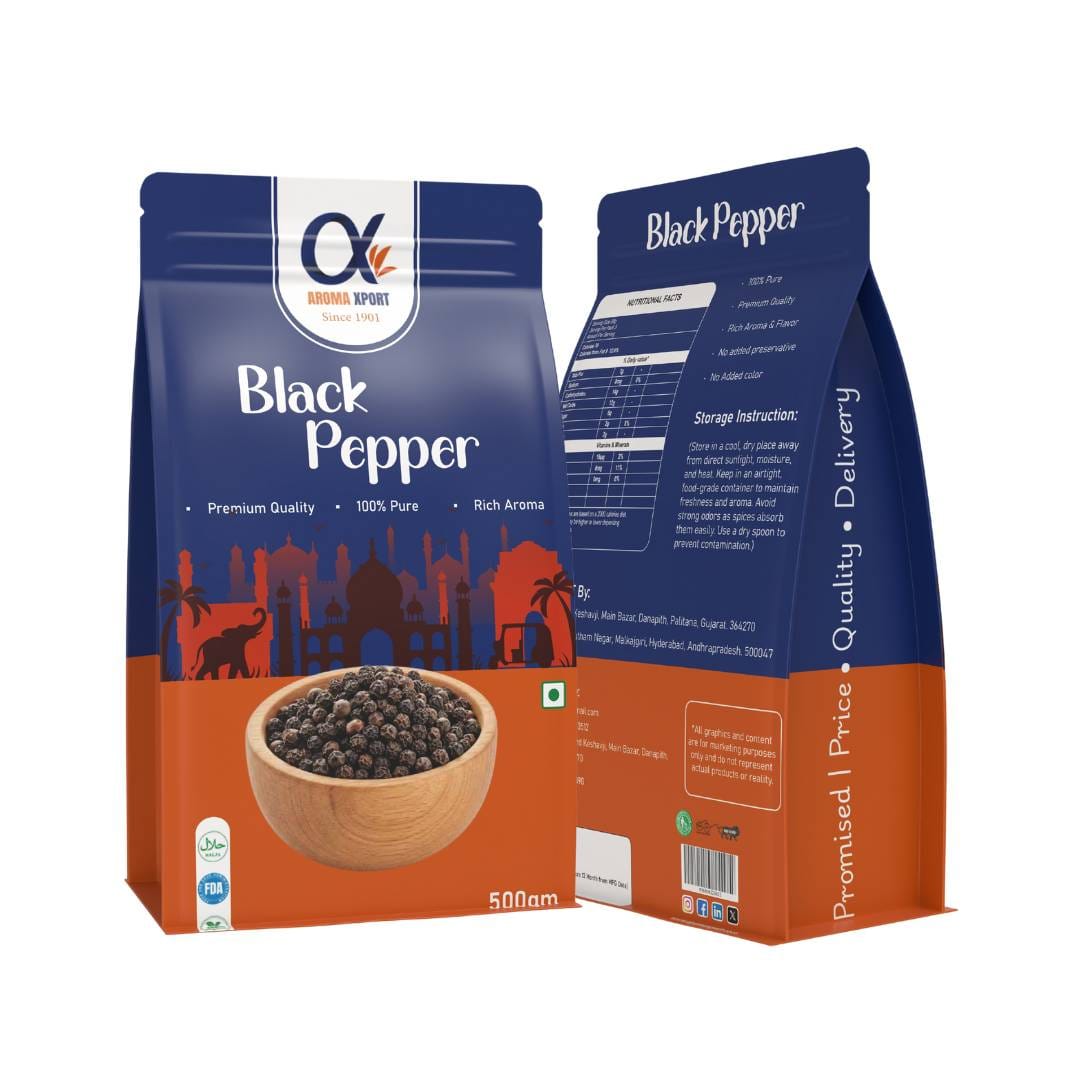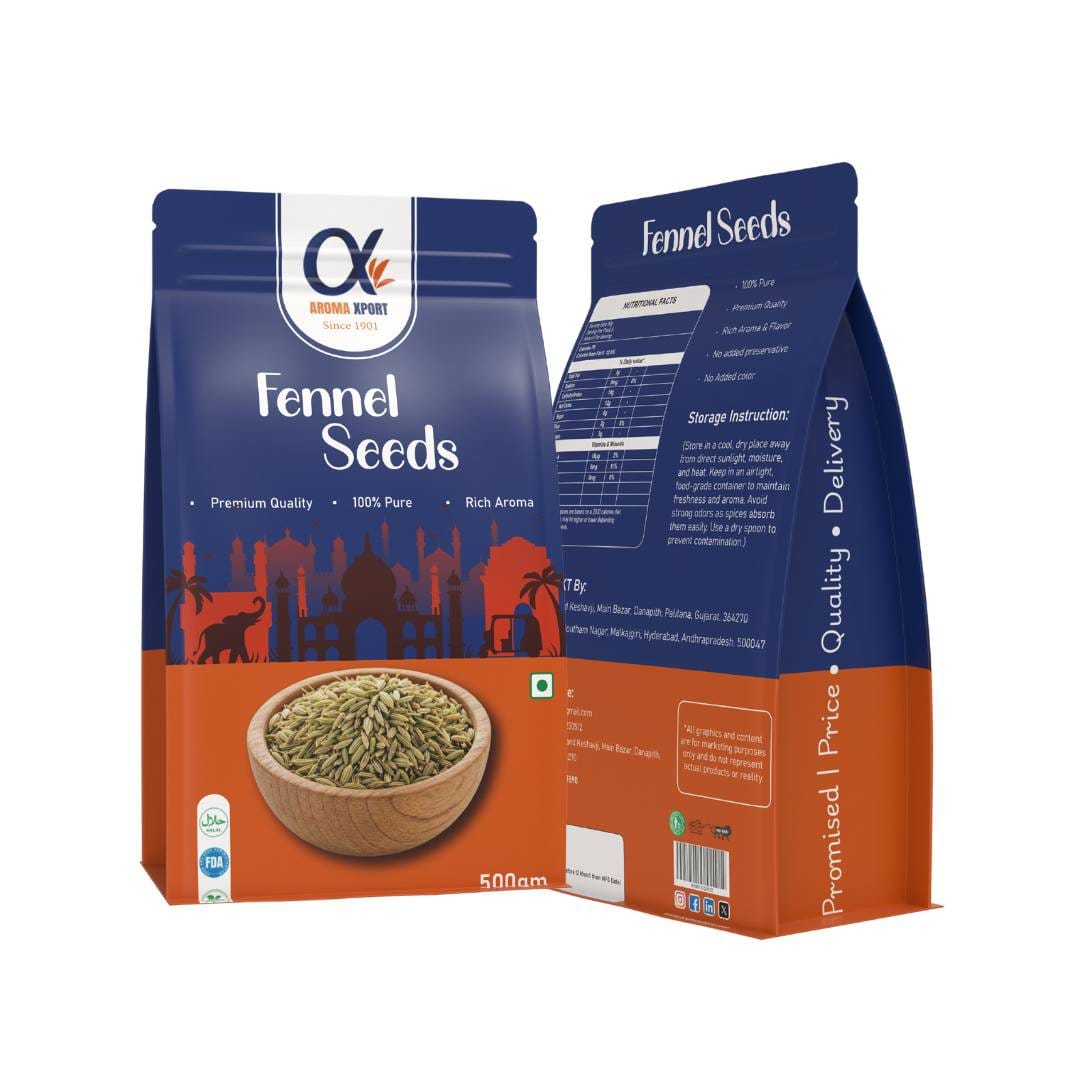Description
Use:
- Culinary: Ginger is widely used in cooking to add flavor and aroma to dishes. It is used fresh, dried, powdered, or as a juice in both savory and sweet preparations.
- Beverages: It is a key ingredient in beverages like ginger tea, ginger ale, and ginger beer.
- Medicinal: Ginger has been used in traditional medicine to aid digestion, reduce nausea, and alleviate cold and flu symptoms.
Origin:
- Ginger originated in Southeast Asia, specifically from regions now known as India and China. It has been cultivated for over 4,000 years and traded extensively along ancient spice routes.
Health Benefits:
- Digestive Aid: Ginger helps stimulate digestion and can relieve nausea and motion sickness.
- Anti-inflammatory: It contains bioactive compounds like gingerol, which have potent anti-inflammatory effects.
- Immune Booster: Ginger is known to strengthen the immune system and can help fight off infections.
- Antioxidant: It possesses antioxidant properties that protect against oxidative stress and aging.
Indian Names for Ginger:
- Hindi: अदरक (Adrak)
- Tamil: இஞ்சி (Inji)
- Telugu: అల్లం (Allam)
- Kannada: ಶುಂಠಿ (Shunti)
- Malayalam: ഇഞ്ചി (Inchi)
- Bengali: আদা (Ada)
- Gujarati: આદુ (Adhuṁ)
- Marathi: आले (Ālē)
- Odia: ଅଦା (Ada)
Foreign Names for Ginger:
- Spanish: jengibre
- French: gingembre
- German: Ingwer
- Italian: zenzero
- Portuguese: gengibre
- Dutch: gember
- Russian: имбирь (imbir’)
- Arabic: زنجبيل (zanjabeel)
- Turkish: zencefil



